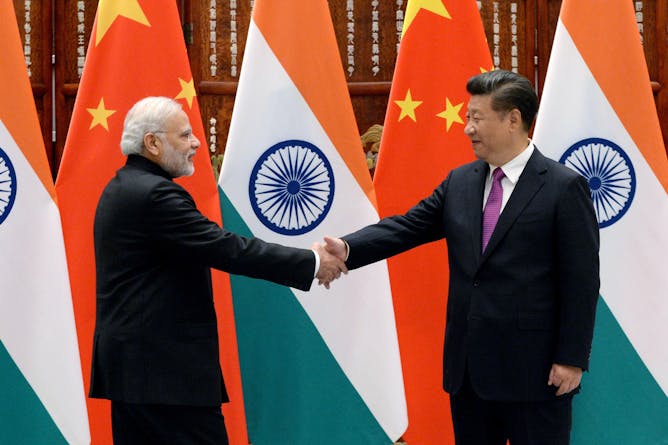|
Elections are everywhere in 2024. National votes are expected to be held in 64 countries, with about half of the world’s population set to go to the polls.
For the global economy’s sake, the two most important may be those to be held in India, starting this month, and the U.S., in November. That’ll be particularly true if Prime Minister Narendra Modi wins the Indian vote, as nearly all observers expect, and if former U.S. President Donald Trump wins a second term in office.
Modi and Trump appear to get on well, and both have an interest in undermining China’s influence. Economist Chee Meng Tan explains what electoral victories for the two could mean for the global economy and how they might affect the balance of power in the Asia-Pacific region.
|

|
Luke Salkeld
Commissioning Editor, Business, The Conversation U.K.
|
|

Chee Meng Tan, University of Nottingham
India’s Modi may be betting on Trump’s return to the White House to build on their existing relationship.
|
|
|
|
|
Technology
|
-
Guillaume Desjardins, Université du Québec en Outaouais (UQO)
Integrating a rational tool into an irrational environment does not always produce the expected results.
-
Angel Zhong, RMIT University
Businesses are increasingly promoting themselves as AI-savvy to attract investment. But as two large US firms discovered, it doesn’t pay to make claims that can’t be backed up.
|
|
Business
|
-
Bart MacCarthy, University of Nottingham
The resignation of the firm’s CEO and chair after yet another safety failure show something fundamental needs to change.
-
Yrjo Koskinen, University of Calgary; J. Ari Pandes, University of Calgary; Nga Nguyen, Université du Québec à Montréal (UQAM)
New research has found that clean tech has much better prospects in the U.S., while oil and gas firms in Canada may outlast their American counterparts.
|
|
Work
|
-
Jane Parry, University of Southampton; Michalis Veliziotis, University of Southampton
A statutory right to request flexible-working arrangements was introduced in 2014 but has been little used. New legislation coming into force could change all that.
-
Rachel Morrison, Auckland University of Technology; Helena Cooper Thomas, Auckland University of Technology; James Greenslade-Yeats, Auckland University of Technology
A new study explains why gossip is in the ear of the beholder – the perceived motivations of the gossiper make all the difference.
|
|
Entrepreneurship
|
-
Renson Muchiri Mwangi, KCA University; Judy N. Muthuri, University of Nottingham; Mohsen Gul, University of Cambridge
Significant numbers of young people remain unemployed or underemployed, despite being educated.
|
|
Inequality
|
-
Chloe Fox-Robertson, University of Manchester; Dariusz Wojcik, National University of Singapore
There is a lack of women guiding the booming fintech industry.
|
|
Tax
|
-
Kerrie Sadiq, Queensland University of Technology; Richard Krever, The University of Western Australia
Australia has backed a move to ensure multinational corporations at least pay some tax in the countries in which they operate, but has baulked at going all the way.
|
|
Personal finance
|
-
Ylva Baeckstrom, King's College London
Are you secure, anxious or avoidant when it comes to finances?
|
|
|
|
More from The Conversation |
|---|
| |
|
| |
| |
| |
| |
|
|